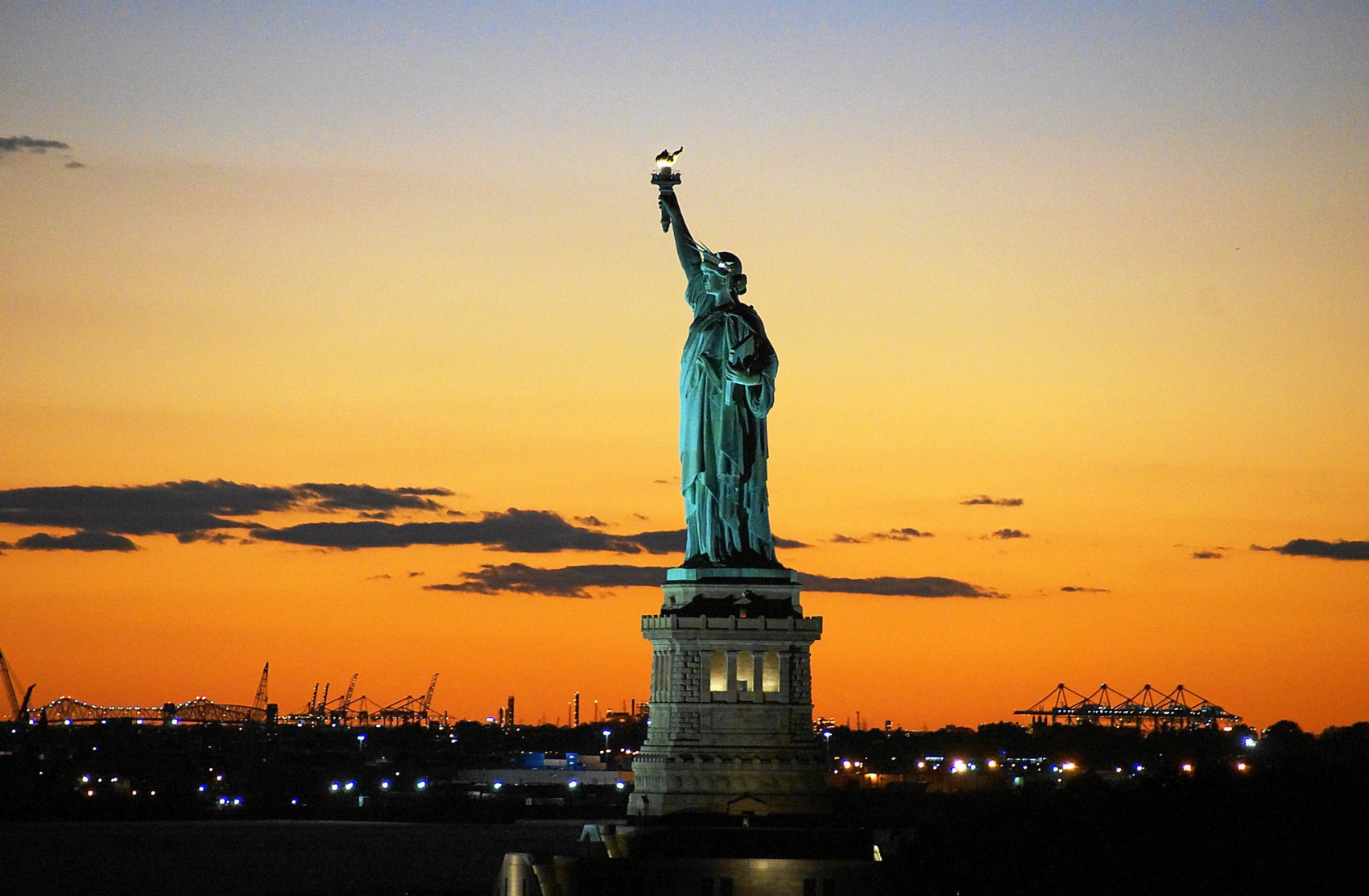economyParis
76 Years After D-Day, History Shows that the USA Is as Flawed A Beacon of Democracy as the USSR was a Flawed Beacon for Socialism: It Needn't End the Same
Democracy has not been fully implemented in the USA, just like socialism was not correctly implemented in the USSR. Can protests after police killing of Geor...

On 6 June 1944, over 150 thousand Allied troops landed on the shores of Normandy in the largest amphibious landing in human history to defeat fascism. Seventy-six years later, in an ironic turn of events, the ghost of fascism is very much alive, more so in countries that joined forces to defeat fascism three generations ago than in countries where fascism spread from in the 20th century.
In recent days, the age-old racism issue again caught the attention of the public across the world. That over a century and half after the abolition of slavery and over half a century after the end of segregation American society is still fundamentally unequal points to another irony: the USA is a flawed beacon of democracy, as much as the USSR was a flawed beacon for socialism.
Russia Wasn't Ready for Socialism
Karl Marx pointed out the cruelties and injustice rampant in the early days of capitalism. He envisioned a different system that would replace capitalism, which would self-destruct due to internal tensions. However, while Marx and Engels offered a vision for socialism ("to organize society in such a way that every member of it can develop and use all his capabilities and powers in complete freedom and without thereby infringing the basic conditions of this society"), they did not provide a complete roadmap for its implementation in any specific nation under any set of specific circumstances—such a roadmap cannot possibly exist.
As such, when the first "socialist republic" was installed in Russia, the enormous Eurasian country was particularly unfit for socialism: The country had no history of democracy, only a history of cruel "class struggles". The population were largely illiterate and were practically never "free".
Consequently, while the revolution led to an experiment of planned economy, it failed to tackle the fundamental issue that Marx pointed to—the conflict between the ruling class who controlled the means of production and the working people who did not. In essence, the USSR was never truly socialist.
The key reason this experiment was unsuccessful, in my opinion, was the lack of the values of liberty and democracy, which was a failure of the Russian context.
In recent years, progressives across major democracies point to the failing of the capitalist system, particularly the widening inequality after the Great Recession of 2008, and question whether some elements of socialism could be implemented in the current environment. I will discuss this in the future. It suffices to say that the association with the USSR has sullied the reputation of socialism.
America Still Hasn't Fully Implemented Democracy
One of the first nations in the world to implement the republican model and the second longest-lasting democracy (after Switzerland), the USA was founded on a set of beautiful ideals: "We hold these truths to be self-evident, that all men are created equal, that they are endowed by their Creator with certain unalienable Rights, that among these are Life, Liberty and the pursuit of Happiness…"
Alas, by "men" the authors meant "white men who owned properties", not black men, not women, not white men who happened to be poor.
It took 80 years for white men without property to be eligible to vote, and the tax-paying qualification remained until the 20th century. Another decade passed before all male persons born or naturalized in the US (except Native Americans) are guaranteed citizenship by the Fourteenth Amendment. In 1920, women are guaranteed the right to vote by the Nineteenth Amendment, and four years later the Indian Citizenship Act finally granted citizenship to all Native Americans. It was not until 1943 that Chinese immigrants gained the right to citizenship and the right to vote.
Essentially, while we all know the USA as the beacon of democracy, democracy in America had a rough start.
Till this day, Americans have still not overcome racial and sexual injustice. However, as I mentioned in a video I made for my previous article (on materialism), I see among millennials a changing tide.
Rev. Al Sharpton recounted a story during his eulogy at George Floyd's memorial: When he protested as a young man in the late 1960s, a young white woman came to him and told him, "Go home, N-----". This week, when he was among the protestors, another young white woman came to him. "No justice, no peace." She said.
The Democracy Experiment in the USA Need Not End Like the Socialism Experiment in the USSR
Many around the world suggest that the USA is morally bankrupt. However, unlike the USSR which was unable to reinvent itself, the USA has continually reinvented itself.
At times, progress has been slow. At times, America has taken steps backwards. America has avoided failure because it is a country built upon ideas, however flawed their implementation has been. It is an idea accepted by the majority of the American population.
In contrast, early leaders of the USSR had a beautiful idea, but the Russian population were not ready for it. Perhaps the irony here is that the slow, gradual experiment of democracy in the USA paved the way for its acceptance, while the fast, sweeping experiment of socialism failed because it was ahead of its time. Perhaps, on the other hand, while socialism died in the USSR because it was too early, the USA has been too slow and the window of opportunity has closed?
Now, 76 years after D-Day, the USA is at crossroads. Is it finally ready to complete the experiment of democracy and guarantee justice for everyone? The following months will possibly show us the answer. As Lenin said, "There are decades where nothing happens, and there are weeks where decades happen."



